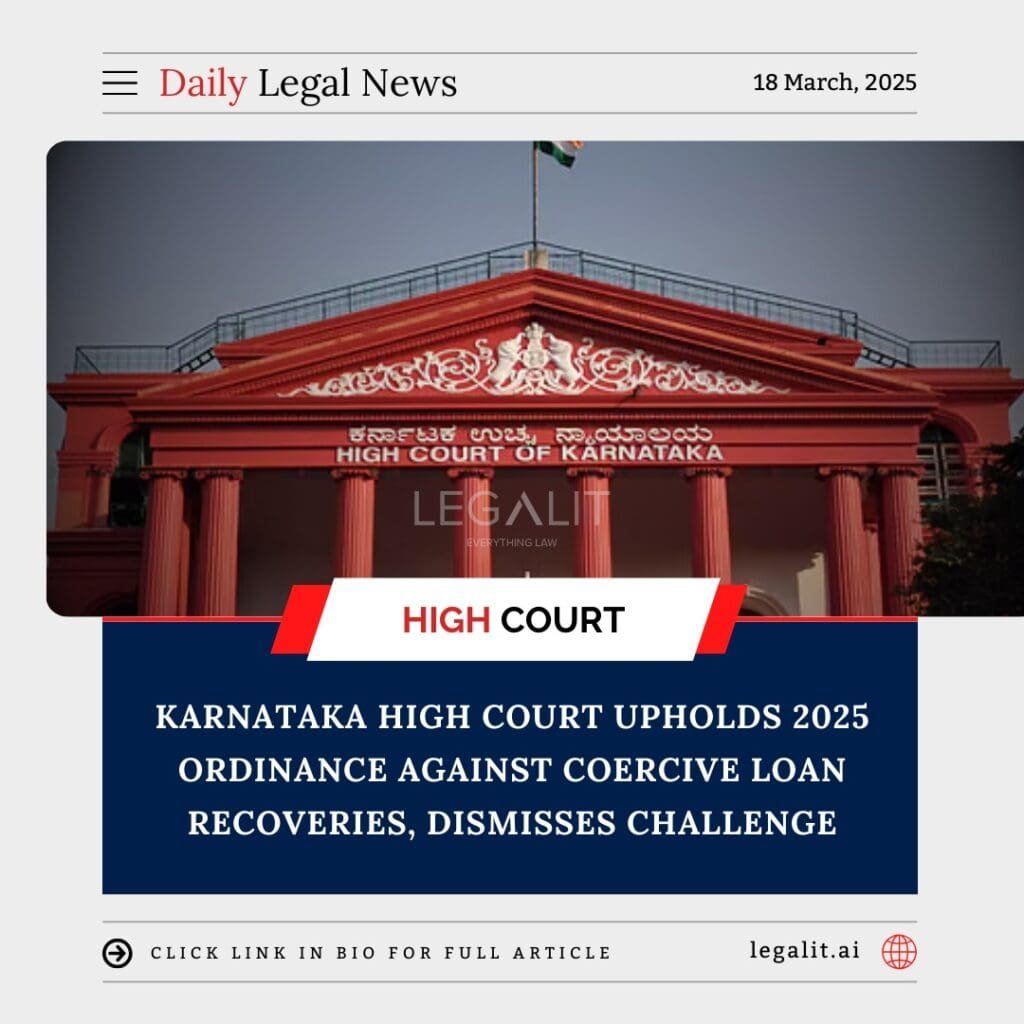
Background
The Karnataka High Court has dismissed a petition challenging the 2025 Ordinance that imposes strict restrictions on coercive loan recovery practices by financial institutions, digital lenders, and private moneylenders. The ordinance was introduced to curb rising instances of harassment, threats, and undue pressure exerted on borrowers, particularly by unregulated lending platforms and loan recovery agents.
The petitioners, including a consortium of financial institutions and lending companies, argued that the ordinance was arbitrary, excessive, and in violation of their right to recover dues legally. However, the High Court upheld the ordinance, emphasizing the need to protect borrowers from unethical recovery practices.
Court’s Rationale
- Protection of Borrowers’ Rights
- The court observed that the ordinance was necessary to safeguard individuals, particularly economically vulnerable borrowers, from undue harassment by aggressive loan recovery agents. Instances of intimidation, public shaming, and threats of violence had been widely reported, necessitating stringent regulatory intervention.
- Regulation of Digital Lending and Informal Recovery Methods
- The bench noted that many digital lending platforms and private moneylenders operate outside formal banking regulations. The ordinance ensures that all recovery processes comply with fair and lawful methods, preventing unscrupulous lenders from exploiting borrowers.
- Balance Between Lenders’ Rights and Consumer Protection
- While lenders have a right to recover loans, the court stressed that such recovery should be conducted within legal and ethical boundaries. The ordinance does not prohibit loan recovery but mandates adherence to transparent and lawful procedures.
- Precedents on Loan Recovery Restrictions
- The High Court referred to past Supreme Court rulings that condemned coercive recovery methods and affirmed the constitutional validity of laws aimed at preventing lender misconduct. It held that borrower protection measures were in line with public interest and financial fairness.
Implications of the Verdict
- Stronger Borrower Protections: The decision reinforces legal safeguards against loan recovery harassment, ensuring that borrowers are not subjected to unethical practices.
- Compliance Obligations for Lenders: Banks, NBFCs, and digital lenders must align their recovery mechanisms with the ordinance, avoiding undue pressure tactics.
- Precedent for Other States: The ruling may influence other states to introduce similar laws against coercive recovery methods, strengthening borrower protections nationwide.
Conclusion
By upholding the 2025 Ordinance against coercive loan recoveries, the Karnataka High Court has reinforced the principle that financial institutions must follow fair and lawful recovery practices. The ruling marks a significant step in protecting borrowers from predatory lending behaviors while ensuring that lenders operate within ethical and legal frameworks.